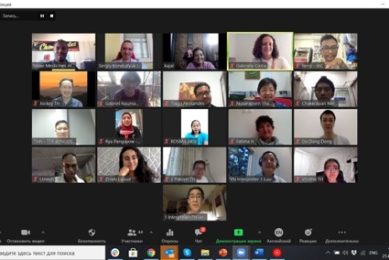In May – June 2021, the International Preparedness Treatment Coalition (ITPC Global) and Make Medicines Affordable consortium conducted the Asia/North Africa Patent Opposition Academy (POA) for 27 lawyers, chemists and civil society activists from Indonesia, Morocco, Thailand and Vietnam. Unlike previous POAs, the COVID-19 pandemic led to this year’s edition being held online.
In its previous two editions, the POAs for Eastern Europe and Central-Asia (EECA) and for Latin America and the Caribbean (LATCA) brought 62 community leaders, lawyers and chemists from 13 countries together to be trained on the steps to prepare patent oppositions.
________________________________________________________________
The Academies aim to provide practical training and capacity building for civil society groups and activists in challenging pharmaceutical patents and patent applications as part of their efforts and campaigns to ensure universal access to affordable, optimal HIV, Hepatitis C, TB and COVID-19 treatment.

The four weeks of training were organized by ITPC, along with MMA partners, such as the AIDS Access Foundation, the Asian-pacific Network with People Living with HIV/AIDS, Indonesia AIDS Coalition, ITPC-MENA and Vietnam Network of People Living with HIV. The POA combined sessions by international experts with practical group work involving identification of key legal provisions, prior art searches, case studies and the preparation of legal and scientific arguments to challenge selected patent applications.
The country teams are encouraged to use the POA as a stepping stone to evolving their own country-specific patent opposition strategy. While several of the issues faced by country groups in challenging patents may be similar (multiple applications through the PCT system, conducting patent searches, understanding and searching for prior art), their national systems have unique challenges and characteristics.
For instance, in Thailand, groups have to contend with extremely short time periods for filing patent oppositions (90 days). Mechanisms for patent oppositions by civil society have come to the fore more recently in Indonesia through its 2016 amendments to the patent law that prohibit evergreening and allow oppositions. Vietnam is usually included in most voluntary licenses related to HIV, TB or HCV medicines but this has usually meant that local production has not been possible. A renewed focus on patent oppositions has arisen particularly during the COVID-19 pandemic on the need to ensure that there are no patent barriers for local production. Patent challenges in Morocco have been complicated by a validation agreement between the Moroccan patent office and European patent office which allow patents granted by the EPO to be enforceable in Morocco. This would mean patent challenges may have to be made at the EPO or only after they have been granted.
Through the POA, country groups were able to share their challenges and learn strategies and approaches used in other countries to overcome some of these challenges. It highlighted the importance of global solidarity and exchange of information to support national level patent oppositions. The joint participation of lawyers, scientist and CSOs brought together different levels of experience and expertise in different areas creating a dynamic where all participants could learn from each other and support each other.
As noted by Othoman Mellouk, “our objective through the POAs is to build up multidisciplinary teams that can work together towards patent oppositions. To create a movement of people who can challenge abusive and frivolous patents and to make sure no more abusive patent are granted and medicine is accessible to those who need it, and not only to those who can pay for it.”
Based on questionnaires filled by participants before and after the POA, a 64.4% increase of knowledge was identified in the EECA and LATCA POAs. By contrast at the Asian POA the average knowledge increase was 37.85%. The average of all academies would be of 56%. While the content of the trainings was largely the same, there were two key differences between the Asian POA and the previous ones. The first was that the previous two academies were in-person and the last one was online. The second related to an already higher level of knowledge and experience amongst the Asian POA participants. With the online shift in the training, it appears that there are opportunities for improvements in teaching approaches and processes, particularly to create more opportunities for access to the trainers outside of the formal sessions. ITPC frequently reassesses multiple aspects of this capacity building to make changes and improvements.




